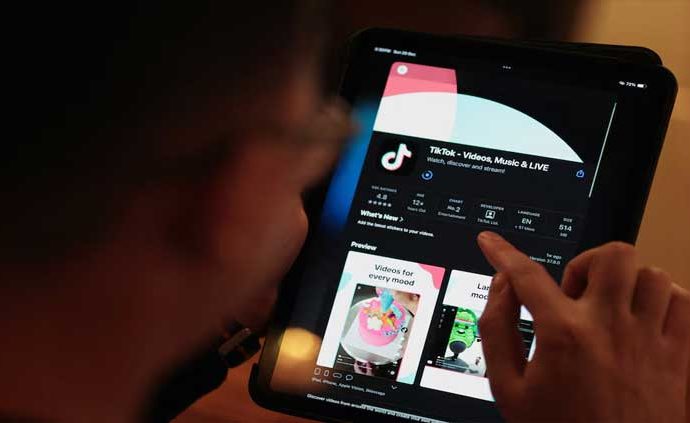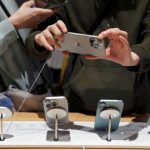TIRANA (Reuters) – Every evening, Ergus Katiaj posts a video on TikTok reminding clients that his Tirana business supplies potato chips, cigarettes, and booze all night. His phone vibrates with orders that add almost 1,000 euros to his monthly profit.
But Katiaj will soon need to find a new strategy to attract customers. Albania’s government has put a year-long ban on the social networking app, which it claims is intended to reduce young violence but which rights organizations and business owners argue threatens trade and free expression ahead of the May elections.
“It will have a huge impact on my business because most of the sales are through delivery thanks to TikTok’s free marketing,” Katiaj remarked as he made deliveries on the outskirts of the capital.
Prime Minister Edi Rama issued the ban on December 21 after a 14-year-old boy was stabbed to death in November by a fellow student, a murder that local media sources stated occurred after the two fought online. TikTok is set to go down in the coming weeks.
The action comes after bans or partial bans in at least 20 countries amid concerns about inappropriate content or security risks associated with the app’s owner, China-based ByteDance, and its ties to the Chinese government.
In Albania, Rama stated that the decision was made after consulting with parents and teachers, but critics fear it is part of the prime minister’s crackdown on political dissent following a year of public turmoil.
Though meeting chair Luis Vayas Valdivieso attempted to strike a cheerful tone:
“This sets a dangerous precedent in which governments can close different platforms at any time,” said Orkidea Xhaferaj of the Tirana-based research tank SCiDEV.
TikTok stated that it was seeking “urgent clarity” from the Albanian government since “multiple reports have in fact confirmed videos leading up to this incident were being posted on another platform, not TikTok.”
Last year, Albania had regular violent protests over the imprisonment of political opponents. Demonstrators tossed petrol bombs at government buildings, prompting police to retaliate with tear gas and water cannons.
The heads of the two largest opposition parties, Sali Berisha of the Democratic Party and Ilir Meta of the Freedom Party, have been charged with corruption. They dispute the allegations, which they claim are politically driven.
Arlind Qori, the leader of the political party Bashke (Together), which was founded in 2022, stated that the TikTok ban eliminates a strong opposition communication tool.
“He wants to close our mouth,” Qori said from his office, as party followers huddled to avoid the cold and planned their campaign.
Rama believes that the action is intended to safeguard young people. In an alleyway in central Tirana, a photo of the deceased student hangs on an electric pole, surrounded by dried flowers and letters from friends.
He was stabbed and walked to his school, bleeding, before an ambulance arrived.
“Inside China’s TikTok, you don’t see hooliganism, perversity, violence, bullying, or crime,” Rama said when announcing his decision last month.
“There are just slime and scoundrels on TikTok outside of China. “Why do we need this?”











